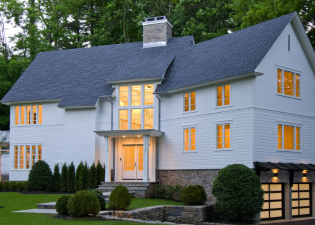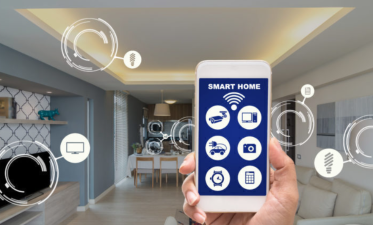As global concern for environmental issues grows, a key development trend in smart home technology is sustainability and energy-efficient design. By 2025, smart home systems will further improve the optimal management of resources, making homes more environmentally friendly and efficient.
As global concern for environmental issues grows, a key development trend in smart home technology is sustainability and energy-efficient design. By 2025, smart home systems will further improve the optimal management of resources, making homes more environmentally friendly and efficient.
Advanced Energy Management Systems
Energy management systems in smart homes will become more intelligent and automated. These systems will automatically adjust the working hours of appliances by analyzing the home's electricity demand and energy supply. For example, high-power appliances such as washing machines and dryers can be scheduled to run during low-peak electricity demand periods based on electricity price fluctuations, thereby reducing energy costs and carbon footprint.

Integration with Renewable Energy
In the future, smart homes will be closely integrated with renewable energy systems, especially solar and wind energy. Homes can install solar panels or micro wind power generation equipment and automatically manage power generation and energy storage through intelligent systems. Energy management systems in homes can store excess energy in batteries or share it with the grid based on real-time demand and weather conditions to achieve optimal energy allocation.
Intelligent Water Resource Management
As water resources become increasingly scarce, smart home technology will play an important role in water conservation and water resource management. In the future, smart water meters will be able to detect water leaks and send out alarms in time to avoid water waste. In addition, the system can also optimize the time of watering plants or lawns according to the family's water use habits and weather conditions, reducing unnecessary water consumption.
Automated garbage recycling system
Garbage sorting and recycling will become more intelligent and convenient. Smart home systems can be equipped with automated garbage sorting equipment that can automatically identify different types of waste and classify them for processing, and even help users sort and store recyclable materials, thereby reducing the negative impact on the environment.
Application scope of smart home
The application scope of smart homes is wide, covering all aspects of family life. Here are some common smart home applications:
- Home security category: including video surveillance, intrusion detection, smoke alarm, smart door locks, etc., used to improve home security.
- Lighting control category: can control the brightness, color and switch of lighting equipment, save energy and improve the quality of life.
- Temperature control system category: including intelligent temperature adjustment, air purification, humidity control, etc., through automatic adjustment of the environment to improve comfort.
- Entertainment media category: including smart speakers, TVs, projectors, etc., used to provide multimedia entertainment and communication functions.
- Health management: including smart scales, smart bracelets, smart blood pressure monitors, etc., which are used to record and manage users' health data.

Future prospects of smart home
With the continuous development and popularization of technology, the smart home industry will usher in a broader development prospect. The following are several development trends of smart home in the future:
- Diversified scene applications: The future smart home will not only be limited to simple switch or remote control, but will also realize more diversified smart scene applications. For example, control the home theater through smart speakers, and automatically adjust the switch of smart curtains according to the weather.
- Data sharing and connection capabilities: Future smart home devices will have stronger data sharing and connection capabilities. Devices can be connected to each other through the Internet, and data can also be shared to achieve more intelligent home management.
- Human-computer interaction technology: Smart home devices will adopt more advanced human-computer interaction technologies, such as voice recognition, gesture recognition, and facial recognition. These technologies will make smart home devices more intelligent and humanized, meeting the needs of different groups of people.
- Personalized needs are more prominent: The future smart home will pay more attention to personalized needs. Through intelligent, data-based, and intelligent means, the needs of different people can be met more accurately, and full-house customization can be achieved.
Summary
Smart home is an important part of future family life, which can help us achieve a more efficient, environmentally friendly and comfortable lifestyle. Through advanced energy management, integration with renewable energy, intelligent water resource management and automated waste recycling systems, smart home will create a more sustainable living environment for us. At the same time, with the continuous development of technology, the application scope of smart home will become more and more extensive, and the future development prospects are very broad. If you are considering decorating or renovating your home, you might as well consider smart home, which will bring unlimited possibilities to your life.

